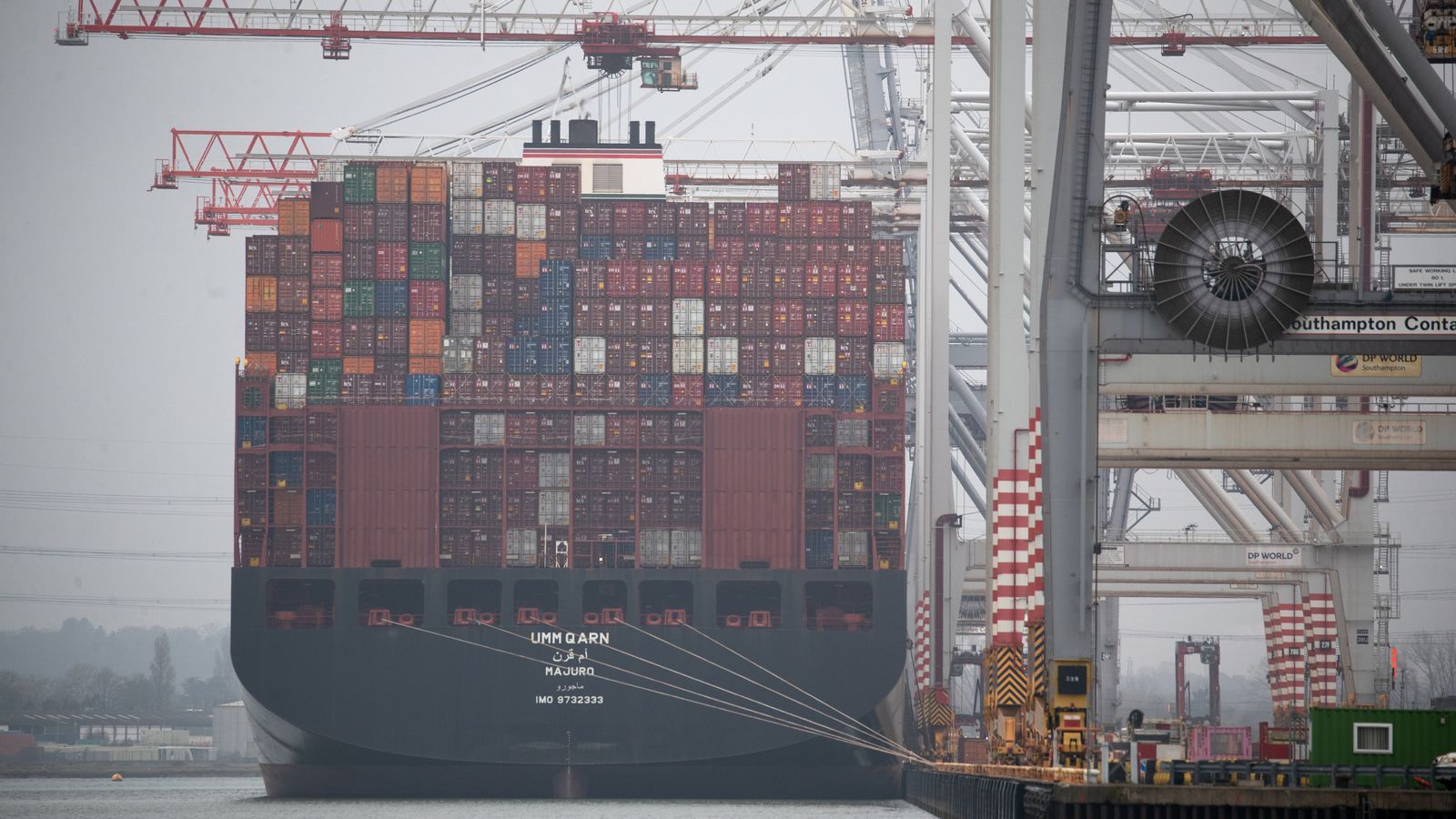The World Bank has warned of a “pronounced slowdown” in global growth as threats from new COVID-19 variants and cost of living pressures bite.
It also pointed to the risks of debt and income inequality as it stressed in particular the risk to emerging and developing economies.
The warning came as separate figures showed inflation across the OECD, a group of 38 mostly developed countries, was at a 25-year high amid soaring food and energy prices.
Elsewhere, there were signs of continued pressure on global supply chains as shipping giant Maersk said the new year “has not started off as we had hoped” with new outbreaks snarling up trade.
The World Bank’s report said that after a strong rebound in 2021 with estimated growth of 5.5%, global expansion looked set to decelerate sharply to 4.1% this year – revised down from a previous estimate of 4.3% – and 3.2% in 2023.
Global GDP shrank by 3.4% in 2020 as a result of the pandemic.
The report pointed to the wave of pent-up demand after lockdowns dissipating and huge levels of support from governments and central banks around the world being wound down.
It said that the rapid spread of the Omicron variant “indicates that the pandemic will likely continue to disrupt economic activity in the near term”.
In addition, slowing growth in bigger economies such as the US and China will hurt demand for what they buy from emerging and developing countries, it added.
With many developing nations lacking the means to support their economies if needed, the report said new COVID outbreaks, persistent supply chain strains, inflation pressures and high debt levels “could increase the risk of a hard landing”.
The period ahead will see a widening divergence between richer and poorer nations with all advanced economies expected to have achieved a full recovery in output by 2023 but emerging and developing nations still 4% below the pre-pandemic trend, it added.
World Bank president David Malpass said: “The world economy is simultaneously facing COVID-19, inflation, and policy uncertainty, with government spending and monetary policies in uncharted territory.”
Separate figures from the Organisation for Economic Cooperation and Development (OECD) showed inflation across its 38 member countries at 5.8% in November, up from 5.2% in October, and the highest rate since May 1996.
Notably, price rises in the US were at a 39-year high of 6.8%.
In Britain, inflation hit a decade high of 5.1% in November.
The OECD area as a whole saw energy prices soar by 27.7%, the highest rate since June 1980, while food price inflation hit 5.5%.
Among the factors putting pressure on prices is the combination of buoyant demand with a supply chain that is still struggling as a result of the pandemic.
Maersk, the world’s biggest shipping company, warned in November that there was “little visibility” about when supply bottlenecks would end.
In a downbeat advisory note to clients on Tuesday, it said: “Unfortunately, 2022 has not started off as we had hoped.
“The pandemic is still going strong and unfortunately, we are seeing new outbreaks impacting our ability to move your cargo.
“General sickness remains high as key ports in key regions are seeing new COVID-19 peaks.
“We recognise that this is causing delays to our customers’ supply-chains and mitigating those disruptions is of the utmost importance to us.”
In Europe, delays at the port of Antwerp were easing from ten days to two days though in Britain’s Felixstowe waiting times for ships to dock remained at more than a week.
The biggest waiting times for vessels for drop off or pick up cargo was at Long Beach in Los Angeles, at up to 45 days.



